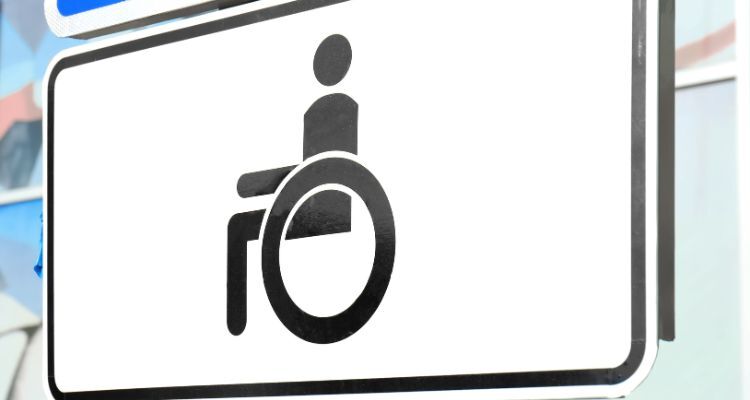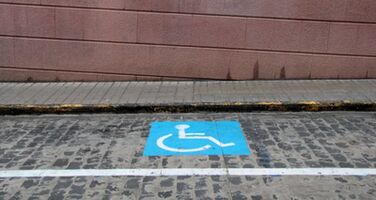
Discover the Benefits of Having a Handicap Placard in Florida
Living with a disability can present many daily challenges, particularly when it comes to mobility and accessibility. To ease these challenges, the state of Florida offers disability parking tags (also known as passes or permits) that allow individuals with qualifying disabilities to access designated parking spaces. These disability tags are more than just a convenience — they provide crucial support for maintaining independence and improving the quality of life for those with mobility impairments.
In this comprehensive guide, we’ll explore the many benefits of having a handicap placard in Florida, from making everyday tasks easier to enhancing your ability to participate in your community. We’ll cover everything from how to apply for a disability tag, where it can be used, and the key advantages it provides. By the end of this article, you’ll have a thorough understanding of how a disability tag can positively impact your life or the life of a loved one.
What Is a Handicap Placard and How Does It Work in Florida?
Definition of a Disability Tag
A disability tag (also known as a parking placard or permit) is a permit issued by the state of FL to individuals with qualifying disabilities that impact their mobility. This tag allows the holder to park in designated accessible parking spaces, which are typically located near building entrances and provide extra room for those using mobility aids such as wheelchairs, walkers, or crutches.
The goal of the disability tag is to make public spaces and services more accessible to individuals with disabilities, allowing them to move about their community with greater ease and convenience. Disability tags can be either temporary or permanent, depending on the individual’s medical condition.
Eligibility Criteria in Florida
To qualify for a disability tag in FL, an individual must meet one or more of the following criteria:
- The inability to walk 200 feet without stopping to rest.
- Severe lung disease or cardiac conditions that limit mobility.
- The need to use a wheelchair, brace, cane, crutches, or other mobility aids.
- Use of portable oxygen.
- Severe limitations due to neurological, orthopedic, or arthritic conditions.
- A disability that limits or impairs their ability to walk.
Applicants must obtain medical certification from a licensed physician, advanced practice registered nurse (APRN), physician assistant, or chiropractor to verify that they meet the eligibility requirements.
Types of Disability Tags Available
There are two primary types of disability tags available in FL:
Permanent Disability Tags
- Permanent Tags: Typically blue in color, these tags are valid for up to four years and are renewable. They are issued to individuals with long-term or lifelong disabilities.
- Permanent license plates: These are specially designated license plates that can replace a standard license plate on a vehicle registered to the person with a disability.
Temporary Disability Tags
- Temporary tags are red in color and are issued for individuals with short-term disabilities, such as those recovering from surgery or injury. These are valid for up to six months and can be renewed if the medical condition persists.
How to Apply for a Disability Tag in Florida
Applying for a disability tag in FL is a relatively straightforward process. Here’s a step-by-step guide to help you apply for your tag.
Step-by-Step Application Process
Obtain the Application Form: Download the Application for Disabled Person Parking Permit (Form HSMV 83039) from the Florida Department of Highway Safety and Motor Vehicles (DHSMV) website, or pick up a copy from your local tax collector’s office or motor vehicle service center.
Complete the Applicant Section: Fill out the applicant’s personal information section, including your name, address, and contact details.
Get Medical Certification: Have a licensed physician, APRN, physician assistant, or chiropractor complete the medical certification section of the form. This certification is required to verify that you meet the eligibility criteria for a disability tag.
Submit the Application: Submit the completed application in person or by mail to your local tax collector’s office or motor vehicle service center. Be sure to include proof of identity (e.g., a driver’s license or state ID).
Receive Your Disability Tag: Once your application is processed, your disability tag will be mailed to you or provided at the tax collector’s office. Temporary tags are typically valid for up to six months, while permanent tags are valid for four years.
Required Documentation for Disability Tag Application
When applying for a handicap permit in FL, ensure you have the following documentation:
- Completed Application Form (Form HSMV 83039).
- Proof of Identification: This could be a Florida driver's license, identification card, or other government-issued ID.
- Medical Certification: Signed by a licensed healthcare provider.
- Vehicle Registration Information: For permanent license plate applications.
If applying by mail, it is advisable to send copies of your documents rather than originals to avoid loss.
Fees Associated with Disability Tags in FL
The fees associated with disability tags vary depending on the type of pass:
- Permanent Tags: No fee.
- Temporary Tags: $15.
- Specialty Disability License Plates: Subject to standard vehicle registration fees, which vary based on vehicle weight and type.
For veterans with a 100% service-connected disability, these plates are provided free of charge. You may also need documentation from the U.S. Department of Veterans Affairs (VA) confirming a service-related disability.
The Benefits of Having a Handicap Placard in Florida
A disability tag can significantly improve the quality of life for individuals with mobility impairments by making it easier to park, access services, and participate in community activities. Here are some of the key benefits of having a Florida disabled permit:
1. Access to Designated Parking Spaces
One of the most obvious and important benefits of having a disability tag is the ability to park in designated accessible parking spaces. These spaces are typically located near building entrances, allowing individuals with disabilities to avoid long walks and minimize the physical effort required to access buildings and services. Accessible parking spaces are wider than standard spaces, providing additional room for individuals using wheelchairs, walkers, or other mobility aids to get in and out of their vehicles comfortably.
Accessible parking spaces can be found in a wide variety of locations, including:
- Shopping centers and malls.
- Medical facilities, such as hospitals and clinics.
- Government buildings.
- Tourist attractions and theme parks.
- Airports, public transportation hubs, and beaches.
2. Free or Reduced Parking Fees
In many areas of FL, disability tag holders are eligible for free or reduced parking fees. This is particularly beneficial in cities or tourist destinations where parking fees can quickly add up. Some municipalities offer exemptions from parking meter fees or provide free parking in public parking lots for vehicles displaying a valid disability tag.
Be sure to check local regulations in the cities or towns you visit, as parking fee exemptions may vary by location.
3. Extended Time Limits at Parking Meters
In FL, disability tag holders may be entitled to extended parking time limits at metered parking spaces. While parking meter exemptions can vary by municipality, many areas allow individuals with a valid disability tag to park for longer periods than the standard time limits. This benefit ensures that disability tag holders can go about their activities without the stress of having to constantly check the meter or move their vehicle.
4. Increased Independence and Mobility
Having a disability tag can greatly enhance your independence and mobility by giving you easier access to public spaces. For individuals with mobility impairments, everyday tasks such as grocery shopping, attending medical appointments, or going to social events can be daunting due to the physical effort required to navigate parking lots and crowded areas. The ability to park in accessible spaces can reduce fatigue, pain, and discomfort, making it easier to engage in daily activities.
By removing some of the barriers to mobility, a disability tag allows individuals with disabilities to lead more independent lives and participate more fully in their communities.
5. Accessible Parking at Popular Destinations
FL is home to many popular tourist destinations, including theme parks, beaches, and cultural landmarks. Fortunately, most of these destinations are well-equipped with accessible parking spaces for disability tag holders. Whether you're visiting Disney World, Universal Studios, or one of FL’s famous beaches, a disability tag can make it easier to find parking close to the entrance, ensuring that you can enjoy your day without the added stress of searching for a parking spot.
Many state parks and recreational areas also offer accessible parking spaces, making it easier to enjoy FL’s natural beauty. For example, at Everglades National Park and Biscayne National Park, accessible parking is available for visitors with disabilities, providing easier access to scenic viewpoints, trails, and visitor centers.
6. Supporting Caregivers and Family Members
If you rely on a caregiver or family member for transportation, your disability tag can make their job easier as well. As long as the person to whom the tag was issued is present in the vehicle, caregivers and family members can use the disability tag to park in accessible spaces. This ensures that you are dropped off or picked up in a safe and convenient location, reducing the strain on both you and your caregiver.
Rules and Regulations for Using a Disabled Permit in Florida
To ensure that your disability tag is used correctly and legally, it’s important to understand the rules and regulations that govern its use in FL.
Proper Display of the Tag
Your disability tag must be displayed correctly in your vehicle whenever you park in an accessible space. The tag should be hung from the rearview mirror, with the front of the tag (which includes your name, permit number, and expiration date) visible through the windshield. If your vehicle does not have a rearview mirror, you may place the tag on the dashboard, but it must be clearly visible from outside the vehicle.
Always remove the tag when driving to avoid obstructing your view, as driving with the tag hanging from the rearview mirror can be dangerous and may lead to fines.
Where You Can Park with a Disability Tag
Your disability tag allows you to park in designated disabled parking spaces, which are marked with the international symbol of accessibility (the wheelchair symbol). These spaces are typically located near the entrances of buildings, shopping centers, medical facilities, and other public areas.
Additionally, some areas of FL offer free parking or extended time limits at metered parking spaces for disability tag holders, but it’s important to check local regulations as these benefits may vary by municipality.
Penalties for Misuse
Misuse of a disability tag is taken seriously in FL, and the penalties for violating the rules can be severe. Common forms of misuse include:
- Using someone else’s tag when the authorized holder is not present in the vehicle.
- Parking in an accessible space without displaying a valid tag.
- Using an expired or counterfeit tag.
Fines for misuse can range from $250 to $1,000, depending on the severity of the violation. In some cases, misuse of a disability tag can also lead to the revocation of the tag and ineligibility for future tags.
Where to Use Disability Tags in FL
A Florida disability tag grants the holder access to designated parking spots in public and private areas throughout the state. These include:
- Municipal parking lots and garages.
- Shopping centers and other commercial establishments.
- Government buildings and hospitals.
Parking in these spots without a valid disability tag can result in fines and penalties, so always ensure the tag is visible when parking.
Renewal and Replacement Procedures
Renewal for Permanent Placards
- Permanent disability tags are renewed every four years. The state sends a renewal notice, and the authorized holder must submit the renewal form either by mail or in person.
Replacement for Lost or Damaged Tags
- To replace a lost or damaged tag, fill out Form HSMV 83039 and submit it to your local tax collector’s office. Include a police report if the tag was stolen.
Traveling Out-of-State with a Florida Disabled Permit
If you are traveling outside of FL, your disability tag is still valid in most U.S. states due to reciprocity agreements. However, always check the local regulations and parking rules for visitors, as some states have additional requirements or restrictions.
International Travel Considerations
If traveling abroad, especially to countries outside of North America, it is advisable to research local policies, as your FL disability tag may not be recognized.
Frequently Asked Questions (FAQs)
What conditions qualify for a disability tag in FL?
Qualifying conditions include:
- Inability to walk more than 200 feet without stopping to rest.
- Severe lung disease, cardiac conditions, or other impairments that limit mobility.
- Use of mobility aids such as a wheelchair, walker, or cane.
- Dependence on portable oxygen.
- Severe neurological, orthopedic, or arthritic conditions.
A licensed healthcare provider must certify that the applicant meets the eligibility criteria for a disability tag.
Can I use my FL disability tag in other states?
Yes, handicap placards issued in FL are recognized in other U.S. states under the Americans with Disabilities Act (ADA). However, parking regulations may vary by state, so it’s important to check local parking rules, especially regarding metered parking and time limits.
Are there fees for applying for a disability tag in FL?
There is no fee for applying for a permanent disability tag in FL. However, there may be a small fee for temporary disability tags or for disabled veteran license plates, depending on the county where you apply.
Can family members use my disability tag without me present?
No. FL law requires that the person to whom the disability tag was issued must be present in the vehicle for the tag to be used. It is illegal to allow others to use your tag when you are not in the vehicle, and doing so can result in fines, penalties, or the revocation of your tag.
How often do I need to renew my disability tag?
In FL, permanent disability tags are valid for four years and must be renewed before they expire. Temporary disability tags are valid for up to six months and can be renewed if the individual’s condition persists. Renewal reminders are typically sent by mail before the expiration date.
What happens if my disability tag is lost or stolen?
If your disability tag is lost or stolen, you should contact your local tax collector’s office or motor vehicle service center to report the loss and request a replacement. There may be a small fee for replacing a lost or stolen tag, but it’s important to act quickly to prevent misuse of your tag.
Conclusion
Having a handicap placard in Florida offers numerous benefits that can significantly enhance your independence, mobility, and quality of life. From accessing designated parking spaces to enjoying free or reduced parking fees, a disability tag provides the support you need to navigate public spaces with greater ease.
Understanding the rules and regulations surrounding the use of your disability tag is essential to ensure that you are using it legally and responsibly. Whether you’re applying for a disability tag for the first time or renewing an existing one, following the guidelines outlined in this article will help you make the most of your disability tag and avoid potential penalties.
With the right approach, a disability tag can be a valuable tool that improves your ability to participate in everyday activities, explore your community, and live with greater freedom and independence.
.png)






